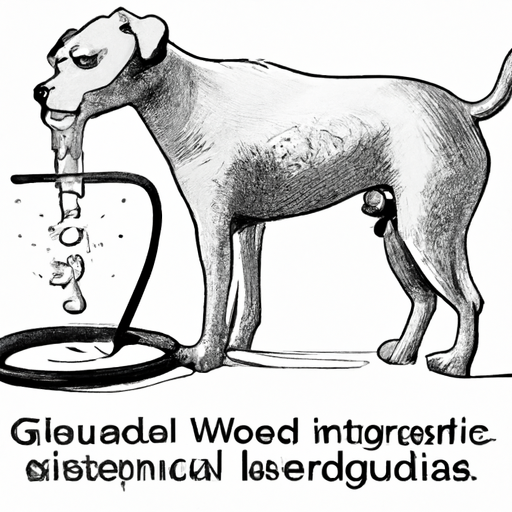As a caregiver, you’re always on the lookout for potential threats to your pet’s well-being. One such threat is Giardia, a nasty intestinal parasite that can make your dog seriously ill. But what causes Giardia in dogs? Let’s dive into this essential topic and shed some light on this hidden menace.
H2: Understanding Giardia
Giardia is a protozoan parasite that thrives in the intestines of a host, in this case, your beloved canine companion. The culprit is a small, single-celled organism that can cause a condition known as Giardiasis, leading to severe diarrhea, weight loss, and malnutrition. The parasite exists in two forms:
- Trophozoites: Active parasites that live in the intestines of infected animals.
- Cysts: Hard-shelled, dormant parasites that can survive outside the host.
H2: How Dogs Get Infected
Your dog can contract Giardia in several ways, most of which involve the ingestion of the cysts. Here’s how:
-
Contaminated Water: Dogs are often infected when they drink water contaminated with feces containing Giardia cysts. This is common in stagnant water bodies like puddles and ponds.
-
Contact with Infected Animals: Dogs can also contract the parasite through direct contact with an infected animal’s feces.
-
Environment: Giardia cysts can survive in soil, food, and surfaces contaminated with feces from an infected animal.
H2: Symptoms of Giardia in Dogs
Giardia may cause a variety of symptoms in your pet, or it may cause none at all. Some dogs can carry the parasite without showing any signs of illness. However, when symptoms do occur, they can include:
- Acute, sudden diarrhea
- Chronic, long-term diarrhea
- Weight loss
- Poor condition or failure to thrive
H2: Protecting Your Dog from Giardia
Preventing Giardia involves maintaining high standards of hygiene and care. Here are some measures you can take:
- Regularly clean your dog’s living area and keep it free from feces.
- Prevent your dog from drinking stagnant water or eating soil.
- Regular vet check-ups to detect and treat Giardia early.
- Consider a Giardia vaccine, although its effectiveness varies.
H2: Treatment and Recovery
Giardia in dogs is typically treated with a combination of medication to kill the parasite and supportive care to manage the symptoms. The treatment may include:
| Treatment | Purpose |
|---|---|
| Antiprotozoal Drugs | To kill the Giardia parasites |
| Probiotics | To support gut health and recovery |
| Dietary Changes | To manage diarrhea and promote nutrition |
After treatment, most dogs recover well, but regular follow-up with your vet is crucial to ensure the infection has been fully cleared.
FAQ
Q: Can humans catch Giardia from dogs?
A: Yes, but it’s relatively rare. Humans are usually infected by a different species of Giardia than dogs.
Q: Is Giardia in dogs fatal?
A: Not typically, but severe cases can lead to serious health problems if left untreated.
Q: How long does it take for a dog to recover from Giardia?
A: With treatment, most dogs show improvement within a week, but full recovery can take several weeks.
As caregivers, we must stay informed and proactive in our pet’s health. By understanding the causes, symptoms, and prevention of Giardia, we can better protect our pets from this unwelcome parasite.



